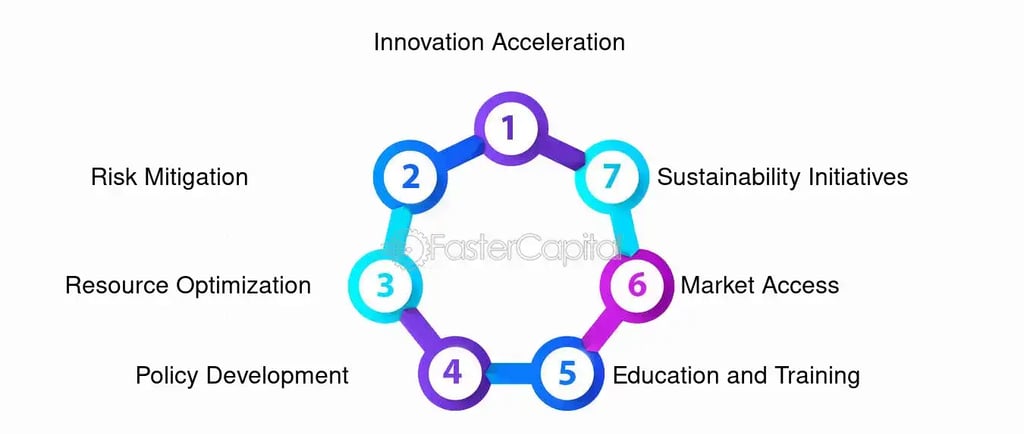Public-Private Partnerships in Agritech: Unlocking Agricultural Transformation
As the world faces mounting challenges in food security, climate resilience, and rural livelihoods, agriculture must evolve. One promising path forward is Public-Private Partnerships (PPPs) in Agritech—collaborations between government agencies, research institutions, and private sector innovators. These partnerships are not just about funding; they’re about co-creating scalable, sustainable, and farmer-centric solutions.
HawkEye
5/22/20252 min read


Why Agritech Needs PPP's
Agriculture in many developing and emerging economies remains under-mechanized, input-intensive, and vulnerable to market volatility. While governments provide the policy framework and public infrastructure, private enterprises often lead in innovation—offering precision tools, AI-powered advisory services, satellite data, IoT devices, and supply chain integration. However, scaling these innovations to the grassroots level, particularly smallholders, requires collaboration.
PPP's bridge this gap by:
Pooling resources for R&D and implementation
Leveraging public trust with private efficiency
Bringing inclusivity to digital innovation
Ensuring long-term sustainability of tech-driven models
Key Models of PPP in Agritech
Digital Extension Services
Governments can provide access to farmer databases and agri-input usage patterns, while private players build AI tools, mobile apps, or helplines. Together, they enable farmers to receive timely, localized advice.
Smart Infrastructure Projects
Joint efforts in building solar-powered irrigation, sensor-based weather stations, or automated post-harvest centers help modernize rural infrastructure, ensuring better productivity and market readiness.
Agri-Insurance and Risk Mitigation
Tech firms bring data analytics to assess risk and forecast crop failures. Government schemes can underwrite these risks, making insurance more accessible and reliable for farmers.
Market Linkages and e-Mandis
Private companies create digital marketplaces or e-commerce channels. Governments support them with FPOs, legal reforms, and warehousing policies—ensuring both reach and regulation.
Challenges to Address
While PPP's hold great promise, there are roadblocks:
Lack of trust between stakeholders
Data privacy concerns
Delayed policy approvals
Uneven digital access in rural areas
Risk of exclusion if innovations bypass marginalized groups
To succeed, partnerships must be transparent, farmer-first, and outcome-driven—anchored in shared goals rather than short-term gains.
The Road Ahead
The future of agriculture is digital, decentralized, and climate-smart. PPPs in Agritech offer the collaborative muscle to turn policy visions into field-level impact. Whether it's improving soil health through tech-enabled monitoring, reducing post-harvest losses via cold-chain partnerships, or training youth in smart farming, a united public-private front is essential.
Governments must act as enablers, not just regulators. Private players must prioritize ethical innovation and inclusivity. And both must listen to the farmer—the ultimate stakeholder.
Agritech PPPs are not just about boosting yield—they're about building resilience, equity, and prosperity in the agricultural ecosystem. With the right intent and frameworks, these partnerships can truly transform the future of farming.
#Agritech #PublicPrivatePartnership #SmartFarming #SustainableAgriculture #AgriTransformation #RuralDevelopment #DigitalFarming #FoodSecurity #PPPModel
